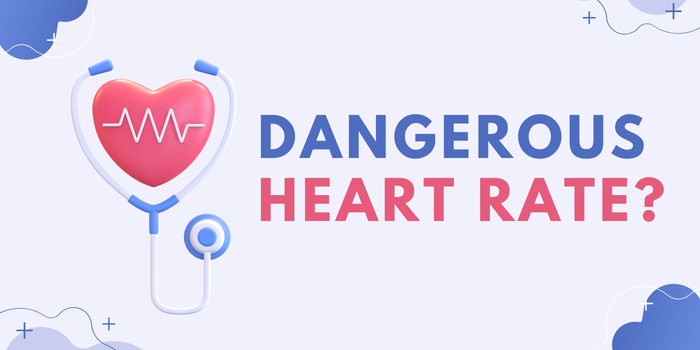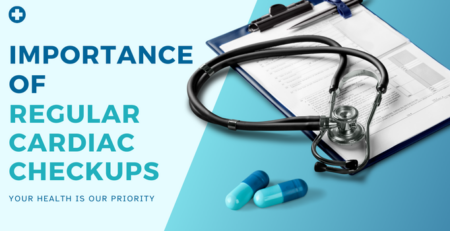What Is a Dangerous Heart Rate?
When it comes to your heart health, understanding what constitutes a normal and dangerous heart rate is crucial. Your heart rate, the number of times your heart beats per minute, can be a clear indicator of your overall health. However, many people are unaware of what their heart rate means and whether it falls within a healthy range.
This article will help you understand what a normal heart rate looks like and what might be considered dangerous. We’ll dive into what factors influence your heart rate, how to measure it, and what you should do if you notice something out of the ordinary. Whether you’re concerned about your heart rate or simply want to stay informed, this guide will provide the information you need to take control of your heart health.
What Is a Normal Heart Rate?
A normal resting heart rate for adults ranges from 60 to 100 beats per minute (bpm). Athletes or individuals with high fitness levels may have a resting heart rate below 60 bpm, often considered a sign of good cardiovascular health.
However, it’s essential to remember that what is normal for one person may not be normal for another. Various factors, such as stress, illness, and even time of day, can influence your heart rate. Understanding your baseline heart rate and how it changes over time can help you detect potential issues early on.
Why Is It Important to Monitor Your Heart Rate?
Monitoring your heart rate is a simple yet effective way to gauge your cardiovascular health. Your heart rate can provide insight into how well your heart is functioning and can alert you to potential health problems before they become serious.
For example, a consistently high resting heart rate may indicate that your heart is working too hard, which could be a sign of underlying health issues such as hypertension or heart disease. On the other hand, a low heart rate could suggest a problem with your heart’s electrical system. By keeping track of your heart rate, you can identify patterns and bring any concerns to your doctor’s attention early on.
What Factors Can Affect Your Heart Rate?
Several factors can influence your heart rate, some of which are within your control, while others are not.
- Age: As you age, your heart rate may change, with older adults often having a lower resting heart rate.
- Fitness Level: Regular exercise can lower your resting heart rate over time as your heart becomes more efficient.
- Emotions: Stress, anxiety, and excitement can cause temporary increases in your heart rate.
- Medications: Certain medications can either increase or decrease your heart rate.
- Illness: Fever, dehydration, and infections can cause your heart rate to rise as your body works harder to fight off illness.
Understanding these factors can help you better interpret your heart rate readings and recognize when something might be wrong.
When Should You Be Concerned About Your Heart Rate?
Knowing when to be concerned about your heart rate can help you take prompt action when necessary.
A heart rate consistently above 100 bpm while at rest may indicate tachycardia, a condition where the heart beats too fast. On the other hand, a resting heart rate below 60 bpm may be a sign of bradycardia, where the heart beats too slowly. Both conditions can be dangerous if not addressed, as they may lead to complications such as fainting, dizziness, or even heart failure.
If you experience symptoms like shortness of breath, chest pain, or fainting along with an abnormal heart rate, you should seek medical attention immediately. These could be signs of a more severe condition that requires urgent care.
How Can You Measure Your Heart Rate Accurately?
Measuring your heart rate is simple and can be done at home without any special equipment. Here’s how you can do it:
- Locate Your Pulse: You can find your pulse on your wrist (radial pulse) or neck (carotid pulse).
- Count the Beats: Use your index and middle fingers to press lightly over the pulse area. Count the number of beats you feel in 60 seconds.
- Check Regularly: For accuracy, take your pulse at the same time each day, preferably when you are at rest.
By regularly measuring your heart rate, you can become familiar with your normal range and quickly notice any unusual changes.
What Should You Do If Your Heart Rate Is Abnormal?
If you find that your heart rate is consistently above or below the normal range, it’s important to consult with your healthcare provider. They may recommend further tests, such as an EKG or stress test, to determine the cause of the abnormal heart rate.
In some cases, lifestyle changes such as increasing physical activity, reducing stress, or adjusting your diet may be all that’s needed to bring your heart rate back to a normal range. However, in other cases, medication or medical procedures may be required to manage the condition effectively.
Is a 120 Heart Rate Normal?
A resting heart rate of 120 bpm is generally considered high. While it’s not necessarily a cause for immediate alarm, it could be a sign of an underlying health condition. It’s recommended to consult a healthcare professional for a proper evaluation.
Is a Heart Rate of 200 Dangerous?
A heart rate of 200 bpm is very dangerous. This is considered a very high heart rate, and it can put a significant strain on the heart. If you experience a heart rate this high, it’s important to seek medical attention immediately.
Conclusion
Understanding what constitutes a normal and dangerous heart rate is vital for maintaining your overall health. By monitoring your heart rate regularly and being aware of the factors that can affect it, you can take proactive steps to ensure your heart stays healthy. If you ever notice any irregularities in your heart rate, don’t hesitate to seek medical advice. Early detection and intervention can make all the difference in managing heart-related issues.
FAQs
What Is Considered A Dangerous Heart Rate?
A heart rate consistently above 100 bpm or below 60 bpm at rest is generally considered dangerous and may require medical attention.
How Can Stress Affect My Heart Rate?
Stress can temporarily increase your heart rate by causing your body to release adrenaline, which prepares your body for a ‘fight or flight’ response.
What Is a Dangerous Heart Rate In Simple Terms?
A dangerous heart rate is significantly higher or lower than a normal heart rate which is 60 to 100 BPM.
Is A Low Heart Rate Always A Cause For Concern?
Not necessarily. A low heart rate can be normal for athletes or physically fit individuals. However, if it is accompanied by symptoms like dizziness or fatigue, you should consult a doctor.
Can Medication Influence My Heart Rate?
Yes, certain medications can either increase or decrease your heart rate. Always discuss any concerns with your healthcare provider.
How Often Should I Check My Heart Rate?
It’s a good idea to check your heart rate regularly, especially if you have any underlying health conditions. Daily checks are ideal for tracking any changes over time.





